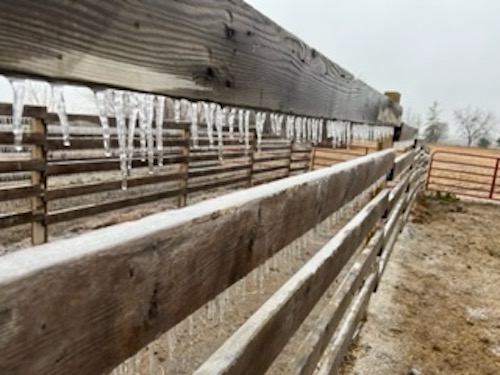Sondra Feldstein is a farmer and business owner in Polk County.
Governor Kim Reynolds wants to exempt all cash rent income for retired farmers from state income tax. This horrible idea would harm rural Iowa and make it even harder for young people to break into the profession of farming.
Iowa already has a problem with an aging population of farm operators. According to the USDA’s 2021 census of agriculture, the average age of farmers in Iowa is 57.1 years. Four times as many farmers are over the age of 65 than under the age of 35. In other words, we don’t have a new generation of farmers to replace the ones already retired.
Why would we want a tax policy that would worsen the problem?
The governor’s proposal would allow any farmer over age 55 to exempt income from cash rent of farmland as well as capital gains from land sales. Let’s say our 55-year-old farmer went out on his own in 1994, at the age of 27.
I use “his” intentionally; women are still underrepresented in agriculture, and 30 years ago even more so. (Even now, when the USDA wants to communicate information about land that’s held solely in my name, the addressee is always my husband. That’s a discussion for another day, though.)
Back to our 55-year-old farmer. In the intervening years since 1994, the average cash rent per acre of crop land has gone from $98 to $233, and the average land value from $1,518 to $7,810. Those numbers are from the 2021 USDA agricultural survey; it’s not clear whether the 29 percent jump in farmland values reported by ISU economists in December of 2021 is incorporated into that latest land value, but I suspect not.
Very few young farmers can afford to buy land, which means our farm population is aging and shrinking. Less population and fewer young families mean continued slow death for rural communities.
Republican politicians give plenty of lip service to the notion of helping rural Iowa. How would exempting cash rent income for retired farmers improve that situation? It would represent an enormous windfall for retired farmers, and could well discourage them from selling land. A 55-year-old man expects to collect cash rent for at least 20 more years. Why sell when you can have tax-free income?
The governor may respond that she also wants to make capital gains from farmland sales exempt from taxes. You can argue that exempting the enormous capital gains from sale of farmland might break loose some sellers, and potentially make land available to younger farmers. But in the real world, very few young farmers would be able to compete for the land. Land would continue to be sold to investors and large so-called “family farm” operations which are just modern plantations by another name.
Let’s talk about truly helping rural Iowa. We need to stabilize the population. That means ways for young people to make a living. I’d rather those young people have more options than just providing services to old farmers who have plenty of cash.
If we want a stable rural population 30 years from now, we have to make it possible for people in their 20s to start farming today. We need ways for them to buy land, like the Beginning Farmers program run by Practical Farmers of Iowa, which incorporates savings programs, mentorship, and a matching service to help current farm owners find prospective ones.
Maybe we need to give tax breaks to retired farmers who sell their land to young farmers. Maybe we need to give preferential tax treatment to income derived from land that is being made available to beginning farmers, especially if there’s a mechanism for future ownership of that land.
But I’m certain that providing a tax-free windfall to every retired farmer in the state would not create opportunities for younger people to start farming. The biggest beneficiaries would be people like Senator Chuck Grassley, who could add his tax-free income to his USDA-subsidy income.

